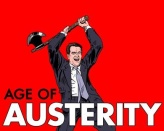John Perry’s Bank problems & debts is indicative of many Irish business people’s difficulties
THE TAOISEACH ENDA KENNY SAYS HE HAS SPOKEN WITH JOHN PERRY ABOUT THE JUNIOR MINISTER’S FINANCIAL DIFFICULTIES. JOHN PERRY HAS SIX WEEKS TO FIND A MEANS OF PAYING ALMOST €2.5M IN DEBTS.
Speaking on Mid-West Radio in Mayo this morning, Mr Kenny said Mr Perry was committed to continuing his work as Small Business Minister.
“Obviously he has worked exceptionally hard in terms of his ministry. He’s got a court judgment to deal with here now in respect of the next five or six weeks,” he said.
Mr Kenny said Mr Perry’s case was “indicative” of a number of business people across the country who have got into difficulty.
“I don’t really want to say any more about John Perry’s particular problem. I spoke to him on Sunday and obviously they are working on that for the future,” he said.
On Monday, Mr Perry and his wife Marie consented to a judgment of €2.47m against them at the Commercial Court over unpaid loans.
Danske Bank issued the loans in October 2011, to be repaid by by November 2012, to restructure existing loans and an overdraft account and provide €25,000 towards tax affairs.
The loans were secured by first legal mortgages over property including Perry’s Hardware store and the Stone Park restaurant at Main Street, Ballymote, Co Sligo.
The judge entered judgment for €2.47m but granted the couple a stay to September 2 on its execution and registration.
Almost 90% of Irish homeowners have paid the property tax


Some 89% OF ELIGIBLE HOMEOWNERS in Ireland HAVE ALREADY PAID THEIR PROPERTY TAX.
The high compliance rate means that €175m has been collected by Revenue. A further €60m has been committed in phased payments.
Dublin City and Louth have the lowest payment rates for the tax, at 85%.
The figures are based on Revenue’s estimates of 1.96 million properties being eligible for the tax.
Revenue will now begin writing to homeowners who have not paid the tax.
“They have 7 days from the date of the letter to file their return(s) on-line to prevent Revenue issuing instructions to their employer to deduct the LPT estimate from their wages or occupational pension,” it said in a statement.
Food industry calls on government to speed up introduction of grocery code

Lobby group Food and Drink Industry Ireland (FDII) is calling on the Government to speed up the introduction of a statutory code of practice for the grocery sector.
The FDII will meet with the Minister for Agriculture, Food and Marine Simon Coveney today and the group hopes to stress the urgent need for the legislation.
The organisation says the code, which aims to bring balance and fairness between suppliers and retailers, has been promised by Government, but the required legislation has not yet been finalised.
“Across Europe, authorities are taking steps to better regulate trading relationships to stop large retailers making unfair demands of suppliers,” FDII director Paul Kelly said.
“The government said legislation to introduce an Irish code would be published in the final quarter of 2012, but we are still waiting.
“The introduction of this code is critical for the sustainability of the Irish agri-food and grocery sectors and its ability to provide high-quality Irish products, choice and convenience to the Irish consumer at fair prices,” he added.
“The code must be properly enforced by an objective adjudicator with powers of investigation.”
It’s time to tell Germans we have had enough of this austerity nonsense
The painful job of thinking is what makes the difference between doing the right thing and simply doing the thing that everyone else is doing just because the conventional view concludes that it is right despite mounting evidence to the contrary.
The great American economist JK Galbraith once said summing up why many people refuse to change their views, particularly if they have invested much time, effort and credibility into establishing that view. The following quotation from Galbraith sums up what’s happening in the policy making of the insiders in Ireland: “Faced with the choice between changing one’s mind and proving that there is no need to do so, almost everyone gets busy on the proof.”
The conventional view on the Irish economy is that we must stick with the programme and that we must continue to grind down wages and prices, squeeze demand and raise taxes. This we have been told for the past five years is the only way and if we stick to this approach, the economy will rebound vigorously.
This approach shows that the people who run the country have actually no idea about how a small economy works and also have an entirely invented narrative which has never been evidenced anywhere in the world. The same story is being spun to the people of Greece, Spain, Italy and Portugal. Ultimately, the same will happen in France because it is a creditor’s view of the world imposed by the creditor nations of Europe against the debtor nations.
 The flaw is that for an economy to grow, aggressive budget cuts need to be offset by a simultaneous massive easing of monetary policy – as was seen in Reagan’s America of the early 1980s, Thatcher’s Britain in the mid 1980s or indeed Haughey’s Ireland of the late 1980s. Without massive monetary easing, the economy will seize up in the face of rising taxes, cutting expenditure and an overvalued exchange rate at a time when the banks are not lending.
The flaw is that for an economy to grow, aggressive budget cuts need to be offset by a simultaneous massive easing of monetary policy – as was seen in Reagan’s America of the early 1980s, Thatcher’s Britain in the mid 1980s or indeed Haughey’s Ireland of the late 1980s. Without massive monetary easing, the economy will seize up in the face of rising taxes, cutting expenditure and an overvalued exchange rate at a time when the banks are not lending.
This is the stuff the average honours student doing economics for theLeaving Cert should know. Not surprisingly, therefore, with broken banks, the Irish economy is not responding positively to the present policy, in fact it is going in the opposite way.
Income is falling, domestic retail sales are on the floor, unemployment and emigration are rising and now we realise that the debt to income ratio – the one statistic that the Government seems to focus on as a litmus test for the success of the policy – is going the wrong way. Ireland’s debt-to-income ratio has actually risen by 12pc this year to 125pc of national income.
The reason for the deterioration in this ratio is straightforward. If yourdebts are greater than 100pc of your income and the growth in your income is less that the annual rate of interest you have to pay on this debt, the ratio of debt to income has to rise. Either you need to get your growth rate up or your burden of debt down. So what’s it going to be?
Before we answer that question, it is crucial to disentangle cause and effect. At the moment the conventional wisdom is suggesting that if we can only get the budget deficit down to some level, we will be okay. The logical implication of this approach is that the budget deficit is the cause of our problems. Therefore, conventional wisdom indicates that reducing the deficit is the solution to Ireland’s woes.
But what if the budget deficit is the consequence – not the cause – of our distress? A much more persuasive angle is to see the deficit as the democratic consequence of a massive balance sheet recession, where the savings rate of Irish people and companies has risen massively due to the collapse of the property market, negative equity and the general slump in confidence.
As savings rise, demand falls. If the Government doesn’t spend in the economy, the slump in demand will cause unemployment to rise even faster.
Proponents of the present policy don’t dispute this but they claim that foreigners will buy Irish goods in sufficient bulk to make up for the collapse in local demand. The implication of this would be that the Irish current account surplus would have to expand at a rate quicker than the Government is cutting spending just for the economy to stand still.
But this is not happening. In truth, the budget deficit is the consequence not the cause of the present malaise.
Saying the budget deficit is the consequence is not the same as saying that the State should run a deficit into perpetuity. But when a country is suffering from a balance sheet recession, with an overvalued currency and a banking system that is dysfunctional, rapid tax increases and spending cuts will make the situation worse.
It is quite obvious that our policy makers and the EU bosses, who are simply looking to keep the entire EMU project alive though all sorts of monetary tricks and sleights of hand, are falling into the Galbraith trap of avoiding the painful job of thinking.
No one is saying that there is a quick fix, but we must entertain the idea of an alternative involving “parking” huge amounts of domestic debt, dealing with our creditors fairly and leaving this currency union which has brought only disaster to Ireland both in the upswing with far too much credit cascading into the country and in the downturn with far too little credit available to refinance the country.
Either we leave the euro and instill a new, much weaker Irish currency, which reflects the much weaker Irish economy or we seek common cause with the other debtor countries within the euro. A united coalition of debtor countries to say to Germany “enough of this nonsense we must mutualise debts now, you take a large haircut, let’s fix this problem right away and stop pussy footing around waiting for your election results”.
Europe’s economy is seizing up and the rest of the world is moving on. Are we to be sacrificed on the barbarous relic of yesterday’s monetary union and the whims of the German electorate just because we don’t want to involve ourselves in the painful job of thinking?
How much more evidence do we need to at least begin the process of doubting the conventional view?
Prostate cancer probe is world first for Irish Cancer Society
A world first in prostate cancer identification and treatment is being launched by the Irish Cancer Society in collaboration with awareness month next N/Movember.
The €1.75m project, which is the brainchild of cancer expert Prof John Fitzpatrick, will collect information about every man diagnosed with prostate cancer in this country, evaluate their treatment and include their opinion on the treatments.
The aim of Irish Prostate Cancer Outcomes Research (IPCOR) is to lead research that will improve the care and survival of patients.
Prostate cancer affects 3,000 new patients here each year and leads to 500 deaths annually. Ireland has the highest rate of 30 European countries.
COLLABORATION
The IPCOR is being run by the Irish Cancer Society in collaboration with the men’s health awareness group Movember and will be funded with €350,000 a year for up to five years.
Prof Fitzpatrick said the collaboration with Movember was particularly important.
 Movember campaigns are where men grow moustaches for the month of November to raise awareness and money for men’s health issues.
Movember campaigns are where men grow moustaches for the month of November to raise awareness and money for men’s health issues.
“For reasons that are not clear, the incidence of prostate cancer here is quite high”, says Prof Fitzpatrick, of the Irish Cancer Society.
“The beauty of Ireland is that it is small enough to do a countrywide study where everybody treated for prostate cancer in the country will be part of this.
“This is the first time this has been done anywhere in the world for any cancer.”
How to put a man on Mars by Professor Pike
Professor Tom Pike from Imperial College London says it is inconceivable that humans will not travel to the red planet in the future.
The Curiosity rover mission’s two-year investigatory mission to explore Mars has fired up interest in space travel and has come as a much-welcome success for a space agency beleaguered by budget cuts and the recent cancellation of its 30-year-old space shuttle programme.
“Since the 1970s we have gone no further than the earth orbit, in the meantime robotic exploration has gone to all regions to corner of the solar system,” said Professor Pike.
“There is a real contest between human exploration which is stuck in a rut and robotic exploration which is flourishing.
We wanted to combine the two, to have robots and humans working together.”
Prof Pike along with his colleagues at Imperial College London have explored the various scientific challenges that a mission to Mars might encounter and drew up plans for the best solutions for a new documentary for the BBC.
They propose sending a robotic team and return vehicle in advance of a manned mission. These robots could mine the Martian surface for water ice in the northern parts of the planet, which could then be split into hydrogen and oxygen for fuel.
This would mean the manned space flight would only have to carry have the fuel, making it lighter and easier to launch, and would enable the astronauts would have a fully fuelled spacecraft waiting on Mars for the return flight.
Water and food would have to be carried with them on the flight, but water would be constantly recycled and would used to reconstitute dried food.
Gravity is also a problem for any manned space flight since the astronauts would have to spend up to eight months on board the spacecraft as they travelled to Mars, during which time their muscles and bones would deteriorate due to weightlessness.
Prof Pike suggests building a spacecraft that is capable of creating its own artificial gravity through spinning. This would enable the astronauts to become acclimatised to Mars, where the gravity is around 40% of Earth’s.
“We are going to get to Mars at some point. It is inconceivable that we will be sitting looking at that planet in 1000 years having not sent anyone there,” he said.








No comments:
Post a Comment